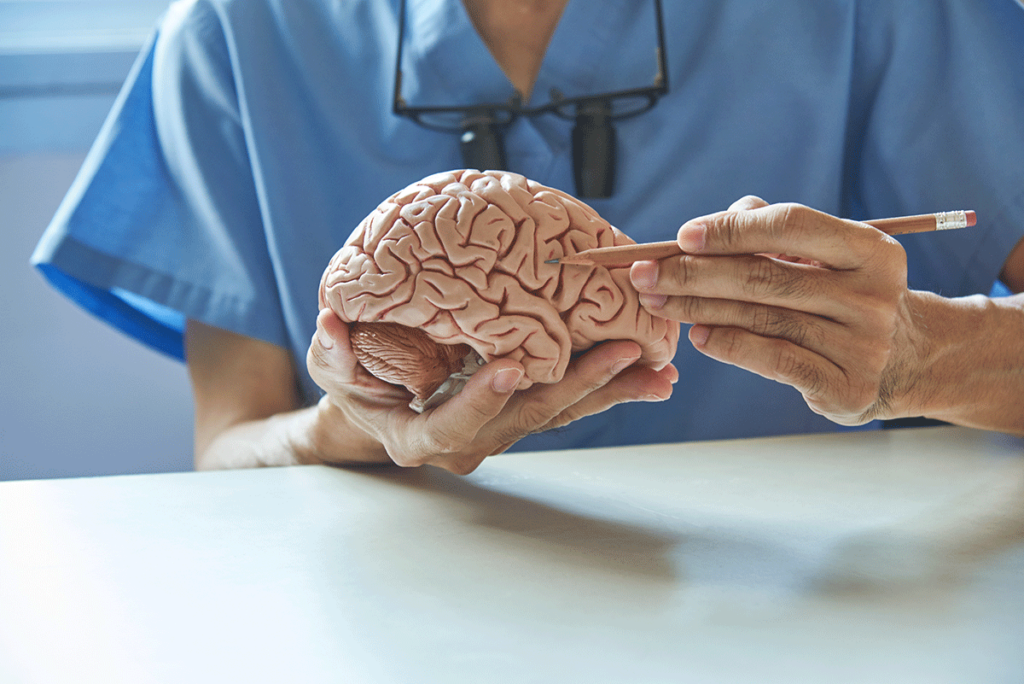Neuroscience and psychology are two distinct fields of study that often overlap in their areas of research. While both fields focus on the understanding and explanation of human behavior, there are significant differences between them. Understanding neuroscience vs. psychology can help you better comprehend the complexities of the human mind and behavior. If you’re in need of adult behavioral health treatment in Florida, Honey Lake Clinic can help. Call 888.428.0562 today to get started.
What Is Neuroscience?
Neuroscience is the study of the nervous system, specifically the brain and its functions. This includes understanding how neurons communicate with each other, how sensory information is processed and interpreted, and how behavior and emotions are influenced by various brain structures and chemicals.
Neuroscientists use a variety of research methods, such as brain imaging techniques (MRI, PET scans), electrophysiology, and genetic analysis, to collect data and gain a better understanding of the brain. They also draw upon knowledge from other fields, such as biology, chemistry, and physics, in their research.
What Is Psychology?
Psychology is the scientific study of human behavior and mental processes. It encompasses a broad range of topics, including cognitive functions, emotions, personality traits, social interactions, and abnormal behavior. Psychologists use various research methods such as experiments, surveys, and case studies to gather data and analyze behavior.
Psychology can be further divided into different subfields, including clinical psychology, social psychology, developmental psychology, and more. Each of these subfields focuses on a specific area of human behavior and uses different approaches to study it.
How Do Neuroscience and Neurofeedback Work?
The brain organizes in rhythms. Brain waves are always firing, and those patterns form and govern how we think, act, and respond. Simply put, people function well when the proper brainwave is dominant at the right time. They do not function when a pattern dominates at an inappropriate time.
In order to determine which brain waves need to be addressed and trained to increase or decrease their activity and in which area of the brain, a quantitative EEG assessment (qEEG) is used. This assessment uses sensors on specific scalp locations to measure your EEG activity in real-time.
Results can be compared, then, against a large database of other individuals. By identifying the brain waves and locations that are either over- and under-stimulated, neurofeedback can be used to help reduce or increase the specific brain waves. These instructions for neurofeedback training—which brain waves and locations to train—are called protocols.
The most effective use of neurofeedback is as a therapy to treat mental health concerns. The effectiveness of neurofeedback training on some disorders has been more thoroughly researched than others, but, in general, neurofeedback training has been found to be beneficial in treating a variety of different neurological disorders. Some disorders that are commonly treated using neurofeedback include:
- ADHD
- Epilepsy
- Anxiety
- PTSD
- Depression
The theory behind neurofeedback is that by training certain brain waves, you can improve your brain’s functioning. You can adjust your thoughts, moods, and your ability to relax or concentrate.
Call Honey Lake Clinic Today to Discover a New You
Neuroscience is another example of the unique treatment options available at Honey Lake Clinic that enable us to help clients address their health across all three spheres—spirit, mind, and body—offering each patient his or her greatest potential for wholeness and transformative growth.
Your ability at Honey Lake Clinic to incorporate a wide variety of therapeutic programs and options into your care is truly unique. The neuroscience track, in chorus with other forms of therapy—equine-assisted, EMDR, art therapy, or massage, for instance—all work together to heal.
Call us today at 888.428.0562 or reach out to our team online to get started.



